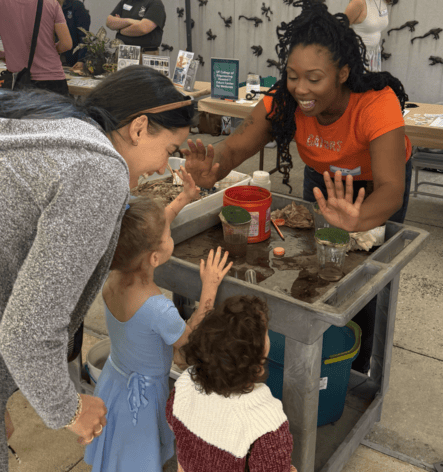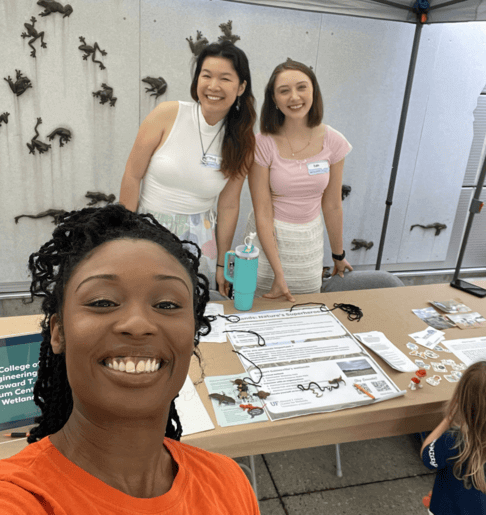When children see photos of Alexis Jackson wading through muddy wetlands — swarmed by insects, enduring scorching heat and working alongside alligators and snakes — their first question is usually, “Why are you doing this?”
On February 8, at the Florida Museum of Natural History’s Girls Do Science event, which was attended by more than 1,300 visitors, Jackson answered that question, giving Gainesville’s youth a glimpse into the life of a scientist and the passion that drives her work.

“I hope the young girls at this event took away the message that they can do anything,” said Jackson, a graduate student in environmental engineering sciences in the Watershed Ecology Lab, advised by CCS Associate Director David Kaplan, Ph.D. “I explained to them that I’m in this career because I care about the environment and want to protect wetlands, as well as improve how we predict their future conditions. If children have an interest in any science, I want them to know that there’s a world of career opportunities out there for them to pursue.”

“The Girls Do Science event is crucial for young girls interested in science because it provides them with role models like Alexis, who demonstrate that science is not only accessible, but also exciting and impactful,” said Janelle Pena-Jimenez, public relations coordinator at the Florida Museum of Natural History.
Joining Jackson was lab mate Katie Schoenberger, an environmental engineering sciences graduate student who studies Florida’s springs, and Megan Sam, communications specialist at the UF Center for Coastal Solutions. The two led a food web activity to demonstrate how every plant and animal plays a vital role in keeping ecosystems balanced.
The event also sparked new outreach opportunities. After stopping by the team’s table, a parent involved with the National Parent Teacher Association connected with Jackson and invited her to speak at William S. Talbott Elementary School for Earth Day.
“Even if just one kid walks away thinking science is cool, that means I planted a seed and made a difference,” said Jackson. “Speaking with the community is just good for the soul. I always leave feeling accomplished.”
—
By Megan Sam
